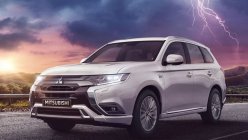The diesel vs. gasoline debate remains a contentious topic among Pinoy car buyers. At its most extreme, potential customers are more than willing to cross out an otherwise capable SUV or pickup from a list of vehicles they’re considering, if it doesn’t come with a diesel option.

Pinoy car buyers have grown accustomed to workhorses powered by diesel engines
According to a poll we ran recently, 67 percent of our readers were partial to models powered by an oil burner, while only 33 percent went for the more refined gasoline fuel. That’s a pretty compelling yardstick of local car buying habits as far as we’re concerned, despite the fact that some automakers are already preparing to give their diesel models the boot.
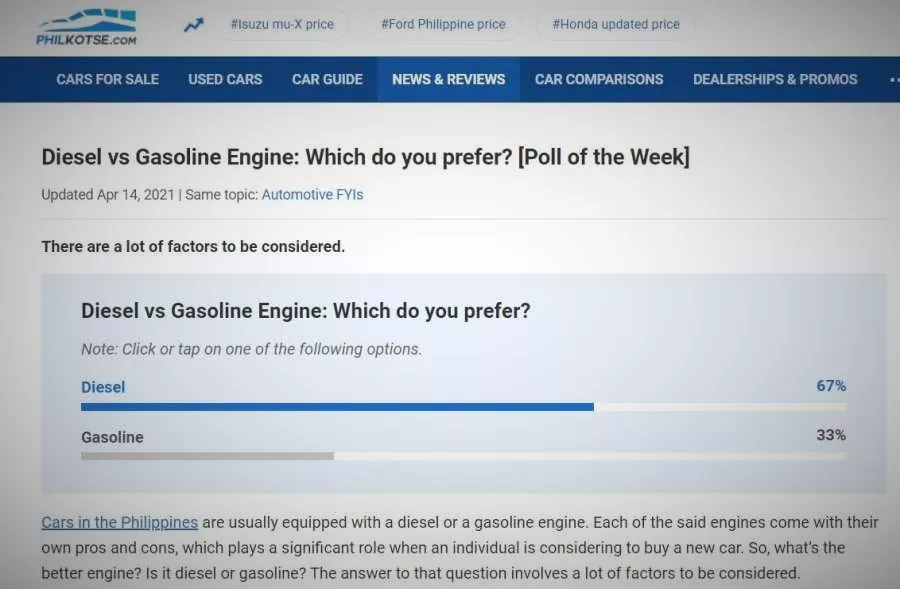
The sound of diesel is the sound of power (or at least our readers think so)
Diesel engines have been in existence since 1893, and it looks like they won’t be able to reach the next half-century, at least for passenger cars. But why are Filipinos holding on to a powertrain whose days are essentially numbered?
Power
What diesel engines lack in acceleration, they make up for in terms of torque. Diesel is best known for delivering tons of grunt, useful for hauling extremely heavy loads over great distances, which is why it has been historically used to propel large vehicles such as locomotives, farm equipment, ships, tanks, and submarines. Heavy construction equipment typically run on diesel engines, and power stations also use them to generate electricity.
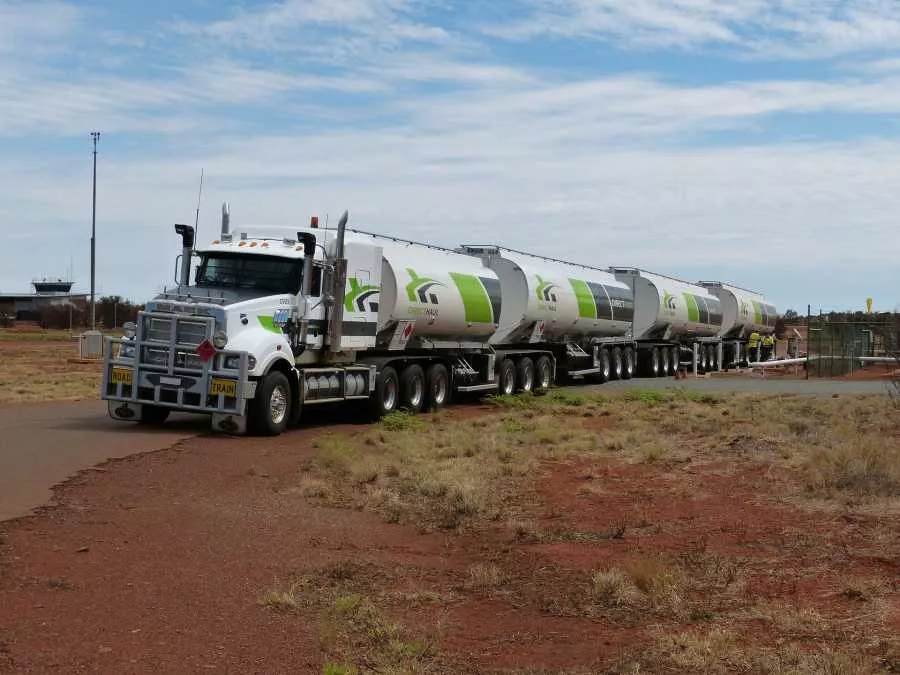
Diesel engines are ideal for applications involving extreme loads
But among diesel’s most popular applications are commercial trucks and large SUVs. Comparing both a gasoline- and diesel-powered variant of the same car model, the latter wins out on torque due to the higher compression ratio, since a diesel piston has to travel a longer distance inside the cylinder. Diesel engines pack plenty of low-end torque, which means they don’t need to have a fast rotational speed to put that power to use.
Efficiency
Liquid diesel fuel isn’t nearly as volatile as gasoline, and in rare cases has been used to douse fires when there are no other options available (we don’t recommend you do this though, since diesel becomes highly flammable in vapor form). Even when the combustion process starts using diesel fuel, it progresses quite slowly.
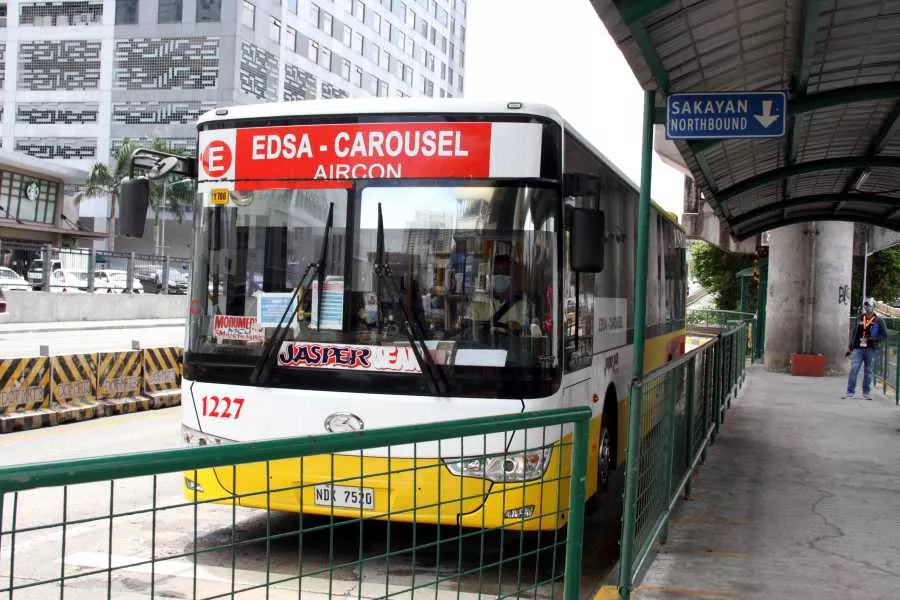
Diesel vehicles retain more of their fuel during extended idling
With diesel fuel’s low flammability, diesel engines burn off comparatively less fuel even during extended idling, which means a lowly cargo truck has the edge over a supercar in a traffic jam. The flip side is that diesel engines need to be under load to reach their optimal operating temperature. Otherwise, what little fuel an idling diesel engine does burn isn’t completely combusted, resulting in pollution.
Cost
Diesel models typically cost more than their equivalent gasoline variant, on account of the engine block being made from iron. The heavy material is necessary to withstand the high compression required to ignite diesel fuel. Many Pinoy car buyers are willing to put up with the pricey initial acquisition cost, in exchange for the lower price per liter of diesel compared to gasoline in the country.
Maintenance
Diesel engines don’t have spark plugs the way gasoline engines do. With fewer parts to replace on a regular basis, the impression is that diesel engines are cheaper to maintain in the long run.
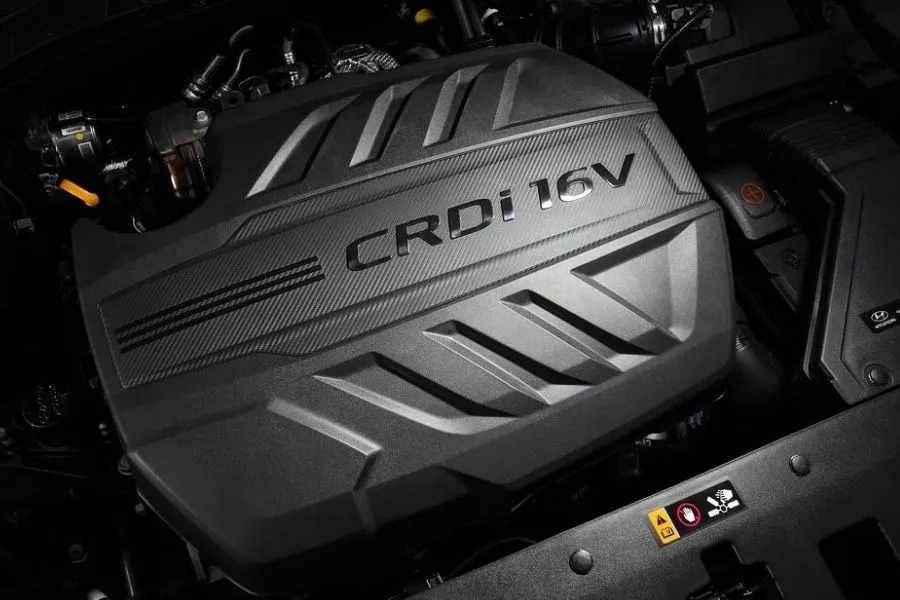
Newer diesel engines are more powerful, but they're also more sensitive to impurities
However, this holds true only for older power plants. Modern diesels feature common-rail injection technology that involves high-pressure injectors, making them particularly sensitive to impurities lingering within the fuel. If even one diesel injector is blocked or otherwise damaged by contaminants, the price of replacing the component can easily reach five figures.
We fuel your automotive knowledge on Philkotse.com.


